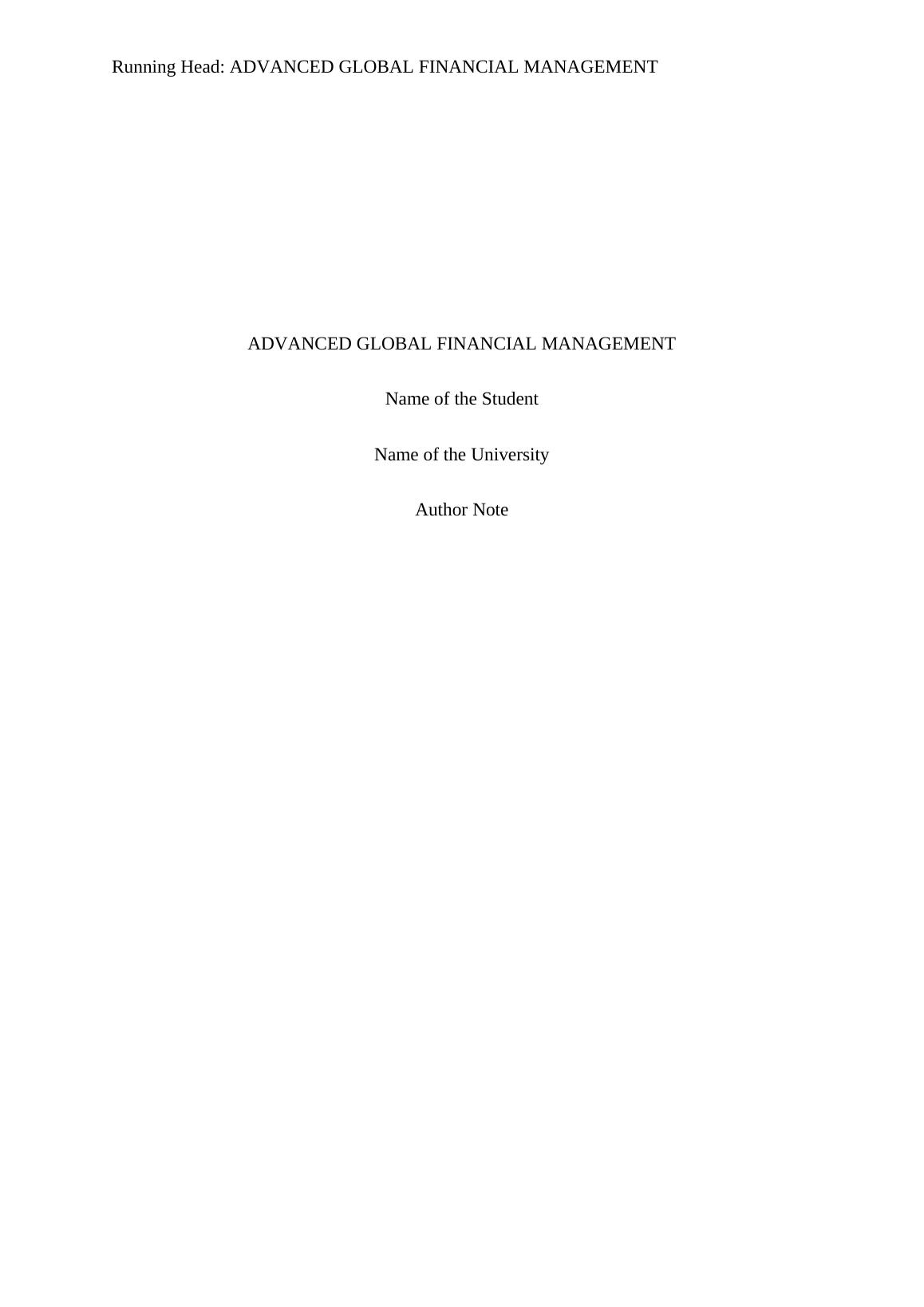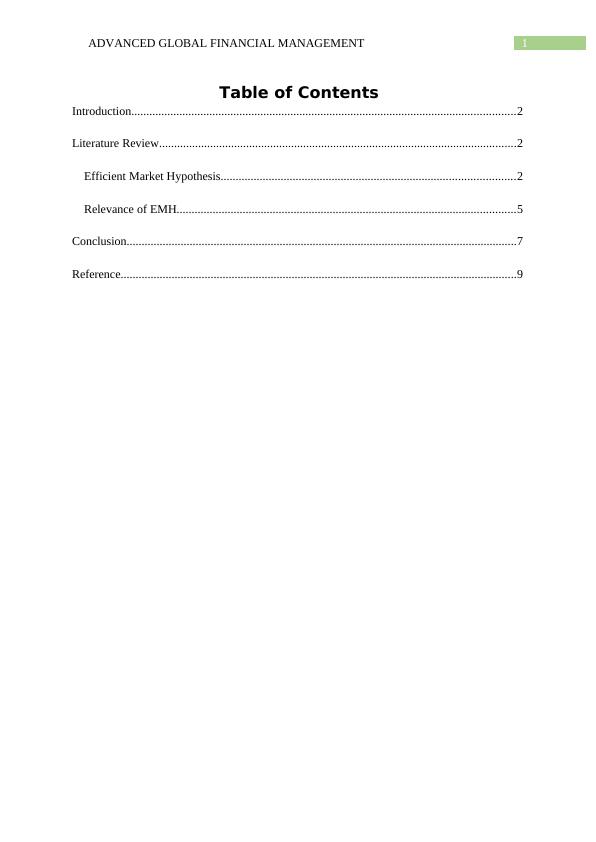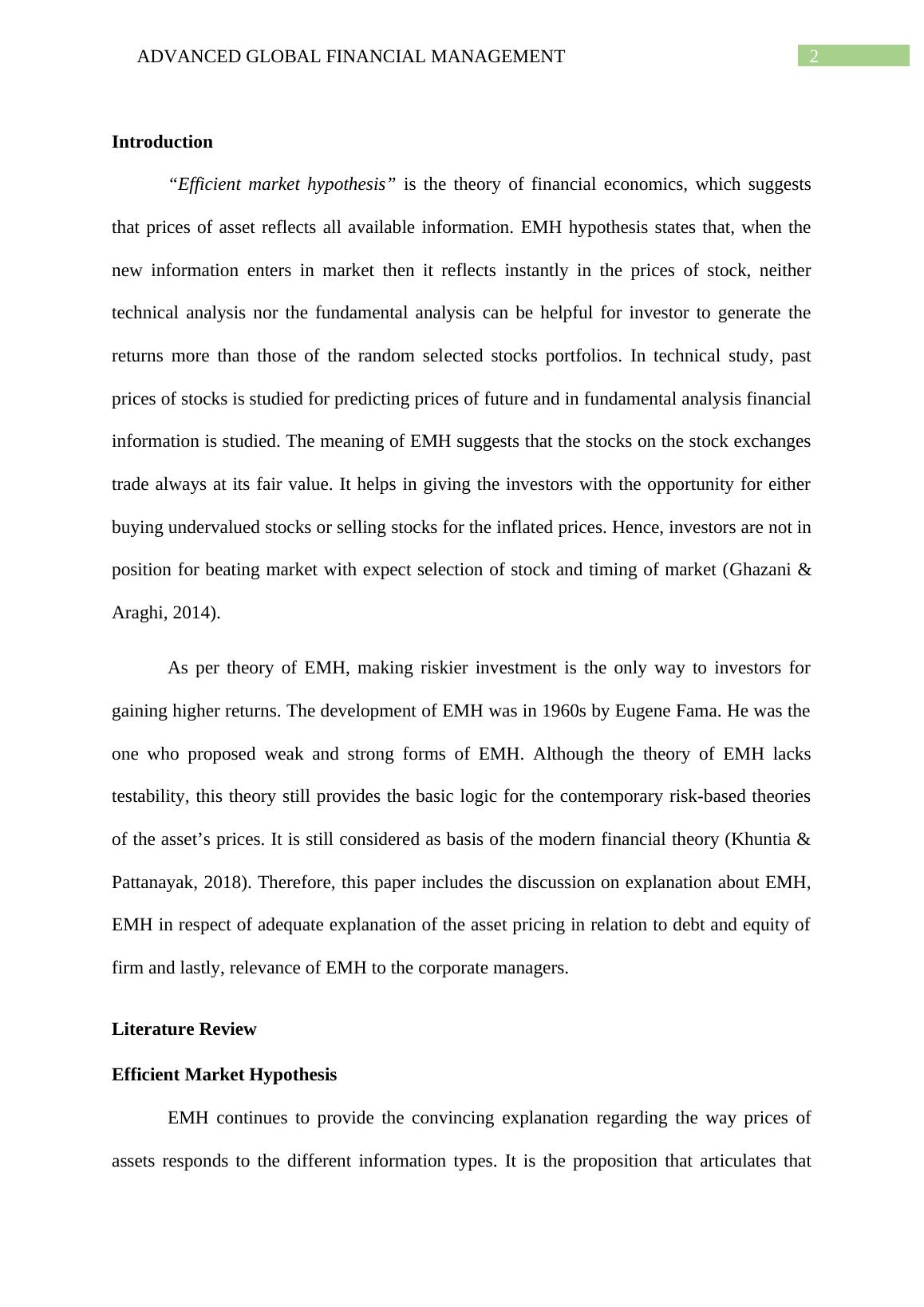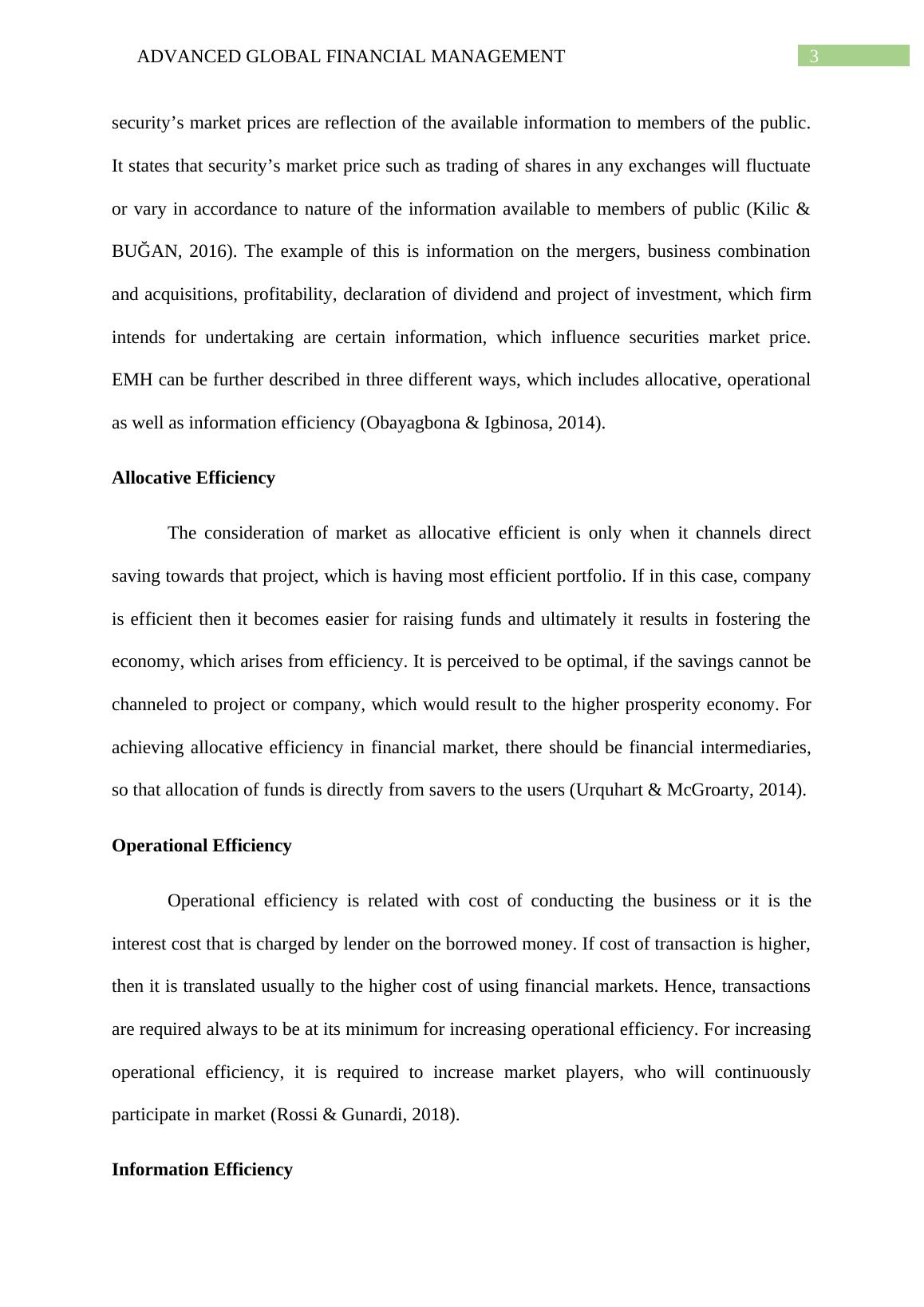Advanced Global Financial Management
Explain and discuss the contention that the Efficient Market Hypothesis (EMH) is of little relevance to corporate managers.
11 Pages2834 Words16 Views
Added on 2022-08-14
Advanced Global Financial Management
Explain and discuss the contention that the Efficient Market Hypothesis (EMH) is of little relevance to corporate managers.
Added on 2022-08-14
ShareRelated Documents
End of preview
Want to access all the pages? Upload your documents or become a member.
Advanced Global Financial Management.
|13
|2903
|14
Global Financial Management
|12
|3081
|16
Efficient Market Hypothesis (EMH) and its Forms
|14
|533
|376
Financial Investment Research Paper 2022
|7
|1565
|23
Efficient Market Hypothesis and Capital Asset Pricing Model in UK Financial Markets
|5
|942
|409
FIN602 - Advanced Financial Management || report
|23
|7597
|44




